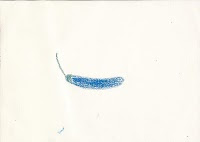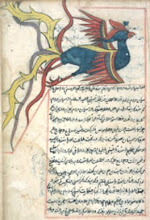The political poem died a sorry death in the Anglosphere some years back, during the so-called Poetry Wars of the 1980's and 1990's. In one of those cruel ironies rampant in academia, it would appear that the instant politics began to dominate the running of the faculty board, political poetry lost much of its potency. The broader public, as it happens, turn to poetry for clarity, at times even salvation, but not self-serving polemic.
As David Biespiel put it so succinctly in an article in Poetry a couple of years back (an article I have cited before in Bluepepper), the public have come to feel ".....excluded, unconcerned, and dismissed because they believe that American (read Anglosphere) poetry has become so esoteric that figuring out the differences among the warring poets is...unecessary...." (David Biespiel, This Land is our Land, Poetry May 2010).
Now I was a tender strapping acned thing during the "wars", but I have a sneaking suspicion that much of the "warring" was in fact spurred on, not by strong ideological conviction, but by the fast-diminishing opportunities for poets to pursue their vocation under the inexorable drive of corporate rationalisation in the publishing world.
Most readers of Bluepepper will have grown up in this world and will have trouble fathoming the sense of injustice and outrage with which our predecessors greeted this harsh new reality. In such an environment most were happy to point the finger while few, too few, remained comfortable with the idea of raising a hand. Sinecures were at stake. Thus the political poem quickly became the domain of the feckless and unhinged, rust-throated relics of a bygone era.
There are, of course, great political poems that endure because they go to the very essence of what it means to be human. The East Europeans turned it into an art form, as did the Enlightenment English, but Pablo Neruda (with due apologies to my friend Margie Cronin) seems to me to sum up the general failing of political poetry in that he is either a great poet or a seductive polemicist, but never both at once. Vallejo could be at times, or the Catalan poet Estelles. Some but not so many. Perhaps in large part because the mistrust many people bring to poetry they bring doubly to the political poem.
Blame Plato if it makes you feel better.
Of course I am speaking as an Australian. An avowedly Euro-centric Australian, but an Australian nonetheless. We are perhaps the least prone to seduction by honeyed rhetoric, more impressed by Cicero's courage than his eloquence, and those who decry the absence of the Great Orator in this country are blind, I believe, to one of our greatest strengths. But then perhaps I am beginning to show my age.
The West Australian/Cambridge poet, John Kinsella, would appear to differ with me on this as on so much else (earnest and sardonic being as oil to water), for he has published yet another stridently political poem in the Spectrum pages of this weekend's Sydney Morning Herald (18/02/2012). Titled "Penillion of the Iron Ore Eaters", the poem is an embarrassment that should never have left the beer coaster on which I suspect it was penned. It labours under the kind of tortured rhyming scheme I remember with an ache between my eyes from open mic night at the Sandringham Hotel, circa 1996. This combined with its utterly incoherent train of thought (surely the death-knell of any political poem?) will do absolutely nothing to help preserve the pristine Pilbara coast currently so hard-pressed by the mining boom. It may even prove counter-productive, both to the poet and to his cause, by re-enforcing an attitude abroad since the Poetry Wars that poets long ago lost all right to a fair hearing.










